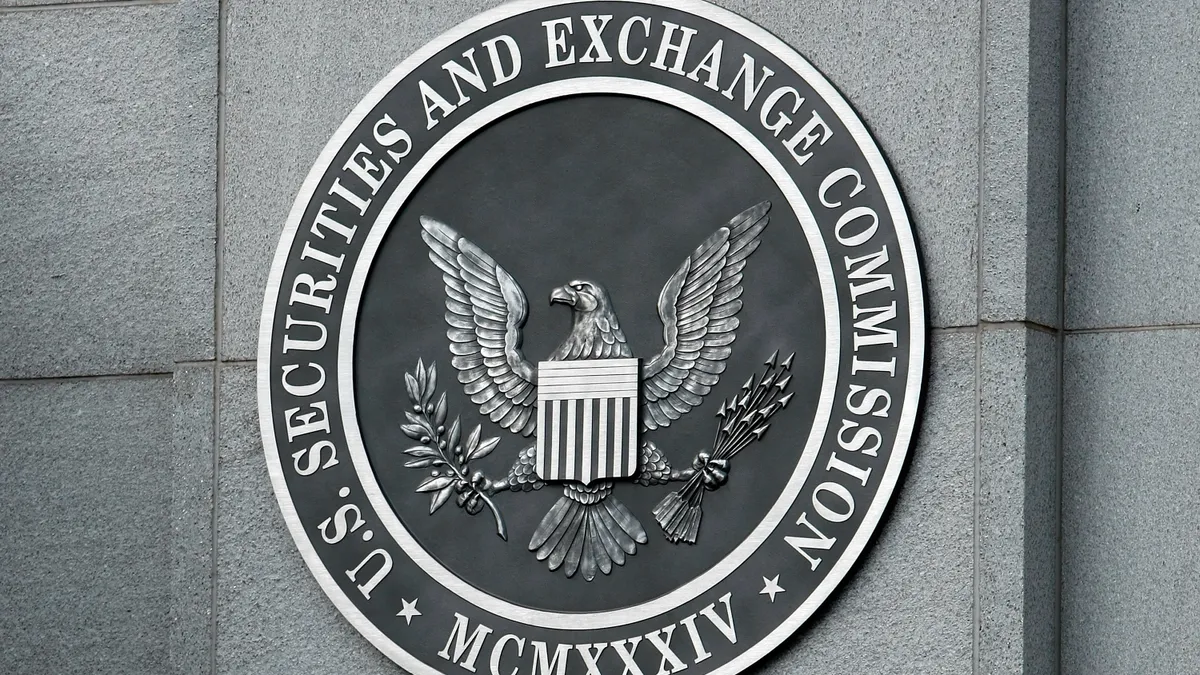Dive Brief:
- The U.S. Securities and Exchange Commission hit Baxter International with an $18 million penalty over accounting improprieties that caused the company to misstate its net income.
- Baxter began an internal investigation into the matter late in 2019, leading it to conclude that it overstated its income by $278 million over a 42-month period starting in 2016. The SEC found the accounting improprieties at the root of the problem date back to at least 1995.
- In settling the matter, Baxter agreed to pay the penalty and to "cease and desist from violations of specified provisions of the federal securities laws and related rules," without admitting or denying the findings of the SEC's administrative order. A Baxter spokesperson in an emailed statement to MedTech Dive said the company "proactively investigated the issue, reported it to the SEC, and provided substantial cooperation throughout the investigation," and that they are "pleased to have resolved this matter."
Dive Insight:
The SEC found Baxter "violated the negligence-based anti-fraud, reporting, books and records, and internal accounting controls provisions of the federal securities laws." Specifically, the commission concluded that Baxter used a convention to convert non-U.S. dollar denominated transactions and assets and liabilities on its financial statements that was not in accordance with generally accepted accounting principles.
According to the SEC, Baxter had allegedly been using this convention since at least 1995. The SEC found Baxter "exploited the convention to enter into intra-company foreign exchange transactions for the sole purpose of generating foreign exchange accounting gains or avoiding foreign exchange accounting losses," starting in 2009.
Baxter's initial internal review covered a much shorter timeframe, with the company finding the problem dated back to 2014 and resulted in the misstatement of income from 2016 to 2019. While the SEC found the problem had deeper roots, it still highlighted Baxter's role in identifying and investigating the issue and factored it into its sanctions.
"It is critical that companies that identify wrongdoing proactively come forward and cooperate with the SEC staff. Baxter's self-reporting and substantial cooperation in working with the staff in this complex investigation was an important consideration in assessing the appropriate sanctions for this case," Paul Montoya, associate regional director of the SEC's Chicago Office, said in a statement.
The SEC also reached a settlement with Baxter's former treasurer and assistant treasurer. The commission found the pair cause Baxter's reporting, books and records violations.
According to the SEC, the assistant treasurer, "along with others working at his direction, was primarily responsible for executing the transactions," while the treasurer failed to investigate how Baxter's treasury department generated consistent gains or whether those transactions were permissible.
The treasurer consented to pay a $125,000 civil penalty. The assistant treasurer faces a smaller civil penalty, $100,000, but has also agreed to pay disgorgement of $76,404 and prejudgment interest of $12,955.
Like Baxter, the former treasurer and assistant treasurer consented without admitting or denying the findings of the SEC's administrative order. The settlement creates a "fair fund" for distribution of proceeds to harmed investors, according to the commission.











